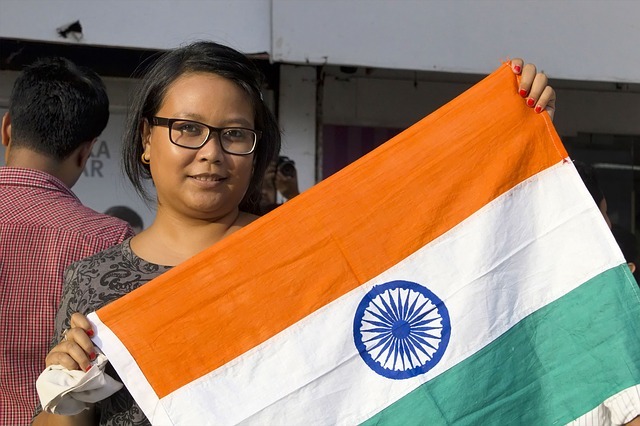Today an Indian court convicted four men accused of the rape of a 23-year old woman in New Delhi last December. Tomorrow, we find out whether or not the four men receive the death penalty. But given the earlier announcement of the light sentence for the underaged fifth rapist — just three years in a reform home — it’s easy to get depressed about the dismal status of women in India.
[pullquote]India has passed a cultural tipping point when it comes to the status of women[/pullquote]But there’s at least one inspiringly positive outcome from this heinous gang-rape: India has passed a cultural tipping point when it comes to the status of women — a tipping point away from the old, cruel patriarchal mindset. As evidenced by the thousands of people who’ve chanted during street protests, the large-print daily headlines, and the extensive TV coverage, a critical mass of Indians has risen up to condemn violence against women and their second-class status in society.
Granted, a majority of the population may not have yet been tipped to more enlightened 21st-century views about women’s status, but what’s key is that a critical mass has been. As a result, India is now on an irreversible path to shedding the single most shameful, embarrassing, and abhorrent thing about it: the way it treats women. The feminists have won. Case closed. The defenders of the old misogynistic mindset are the laughingstock now; they’ve lost the intellectual and cultural battle.
Signs of a new order are springing up everywhere. As the critical mass has voiced its outrage, the government has established fast-track courts to try rape cases and has been toughening laws. Crimes against women aren’t being swept under the rug — today they’re part of a national conversation. Disfigured acid-attack survivors now have the courage to take off their veils.
The recent surge in reported rapes is partly due to more women feeling empowered to speak up, but it’s also partly due to a backlash by young, frustrated men who feel entitled to put the new generation of independent working women “back in their place.” When 21st-century women violate first-century cultural norms, these men feel it’s their right to punish these women. The young woman gang-raped in New Delhi last December had gone to see a movie with a male friend — something unthinkable in the old India. Police say the rapists were motivated by a need to “teach her a lesson.” As Prime Minister Manmohan Singh said shortly after the gang-rape, “The emergence of women in public spaces, which is an absolutely essential part of social emancipation, is accompanied by growing threats to their safety and security.”
[pullquote]India is passing through a fast and powerful cultural transformation.[/pullquote]As terrible as this male backlash is, it’s also a sign that Indian misogyny is in its death throes. India is passing through a fast and powerful cultural transformation. The thousands of people protesting against rape, the millions tuning in to TV coverage about violence against women, the critical mass of fed-up citizens — they have pushed India past the tipping point, beyond the point of no return. The ancient patriarchal mentality is becoming history; the forces for enlightenment, fairness, and human decency have won.
Preeti Aroon, a writer based in Washington, D.C., is copy chief at Foreign Policy magazine and tweets at @pjaroonFP.













